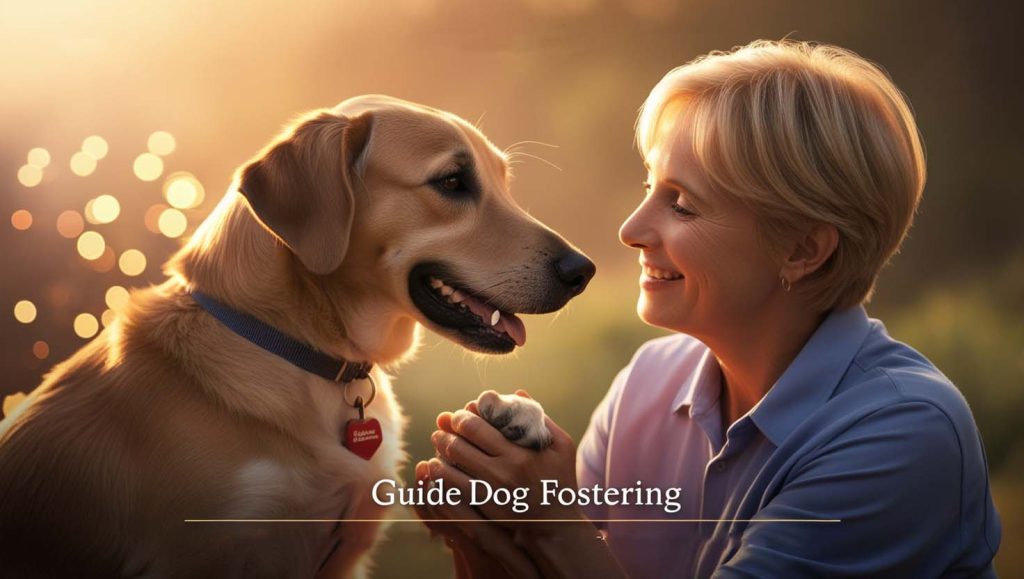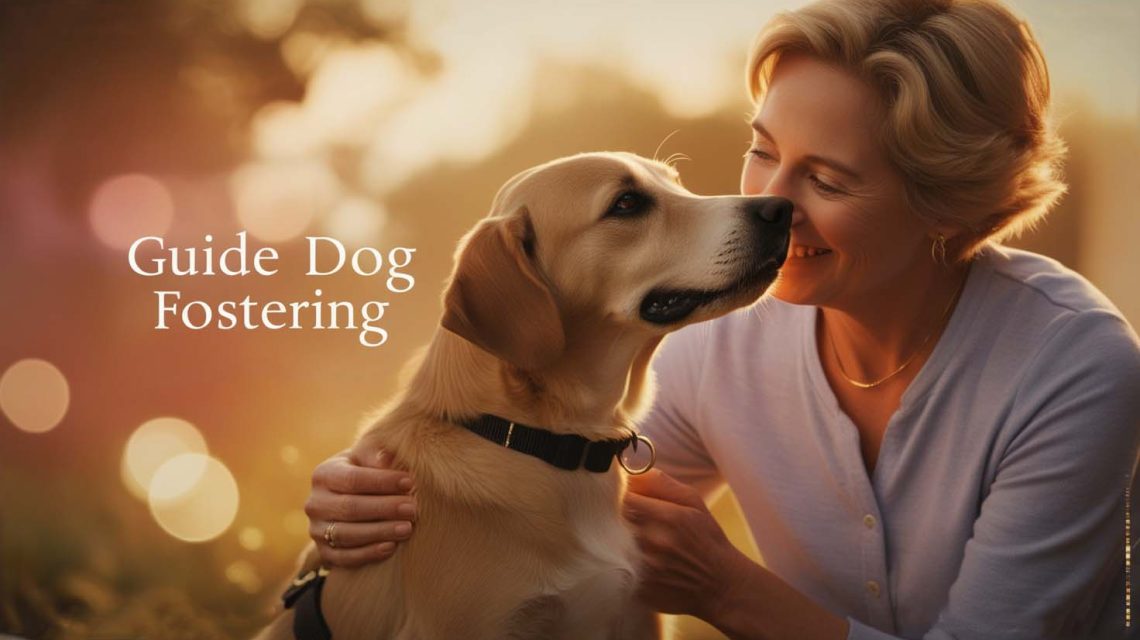Introduction
Guide dog fostering is a unique and rewarding experience that allows individuals to play a vital role in the training and development of future guide dogs. By opening your home to a young, energetic puppy, you can provide essential socialization, obedience training, and love. This article will explore the ins and outs of guide dog fostering, from the initial application process to the emotional journey of saying goodbye to your foster pup.
Understanding Guide Dog Fostering
Guide dog fostering involves caring for a young dog who is destined to become a working guide dog. These dogs are carefully bred and selected for their temperament, intelligence, and physical attributes. As a foster parent, you’ll be responsible for providing a loving and stimulating environment, as well as following specific training guidelines.
The Benefits of Guide Dog Fostering
- Fulfilling a Noble Purpose: By fostering a guide dog, you’re contributing to a cause that empowers individuals with vision loss to live independent lives.
- Unconditional Love: Foster dogs offer boundless affection and companionship, enriching your life in countless ways.
- Training and Socialization: You’ll learn valuable dog training techniques and have the opportunity to socialize your foster dog with various people, animals, and environments.
- A Sense of Community: Joining a network of fellow foster parents creates a supportive and understanding community.
- Personal Growth: Fostering a guide dog can be a transformative experience, teaching you about patience, responsibility, and the power of unconditional love.
- Improved Well-being: Studies have shown that interacting with dogs can reduce stress, lower blood pressure, and improve overall mental health.

The Process of Becoming a Guide Dog Foster Parent
- Application and Screening: The first step is to contact a guide dog organization and complete an application form. The organization will assess your suitability as a foster parent, considering factors such as lifestyle, living situation, and experience with dogs.
- Home Visit: A representative from the organization will visit your home to evaluate its suitability for a foster dog. They’ll assess the safety of your environment and your ability to provide adequate care.
- Training and Support: Once approved, you’ll receive comprehensive training and support from the guide dog organization. This includes guidance on basic obedience, house training, and socialization techniques.
- Foster Placement: You’ll be matched with a young guide dog puppy who is ready for a foster home. The organization will provide you with specific guidelines for the puppy’s care and training.
The Daily Life of a Guide Dog Foster Parent
As a guide dog foster parent, your daily routine will involve a mix of training, socialization, and general care. Here’s a glimpse into a typical day:
- Morning Routine: Start the day with a morning walk, followed by breakfast and basic obedience training.
- Socialization Activities: Take your foster dog to various public places, such as parks, stores, and restaurants, to expose them to different sights, sounds, and people.
- Training Sessions: Dedicate specific time for training sessions, focusing on commands like “sit,” “stay,” and “come.”
- Evening Wind-Down: End the day with a leisurely walk and a quiet evening at home.
The Emotional Journey of Saying Goodbye
One of the most challenging aspects of guide dog fostering is saying goodbye to your foster pup when they graduate to formal guide dog training. While it can be an emotional experience, it’s important to remember that you’ve played a crucial role in their development and future success.
Tips for a Successful Foster Experience
- Stay Consistent: Maintain a consistent routine and training regimen to help your foster dog learn and adapt.
- Be Patient: Guide dog training takes time and patience. Don’t get discouraged by setbacks; celebrate small victories.
- Seek Support: Connect with other foster parents and the guide dog organization for advice and encouragement.
- Enjoy the Journey: Embrace the opportunity to bond with your foster dog and make a positive impact on their life.
- Document Your Experience: Keep a journal or blog to document your foster journey. This can be a valuable way to reflect on your experiences and share them with others.
- Stay Connected: After your foster dog graduates, stay in touch with the guide dog organization to receive updates on their progress. You may even have the opportunity to meet them again in the future.


